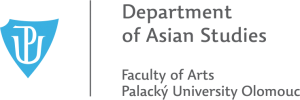Anastasia Guryeva (St. Petersburg)
15 March 2019
In the globalizing world today with a growing scale of international contacts, the importance of understanding cultural specifics, of a variety of approaches as well as their interpretation depending on the cultural background is hard to overestimate. In Korean culture, literature and text in general have always been attributed a special importance, therefore many mental perspectives and behavioral patterns may be found in literature, and many of them trace their roots to traditional texts. Therefore, literary texts can serve an informative source on the Koreans’ understanding of the world, as well as their perception of human relations and social matters.
Conventionally pre-modern and contemporary literatures are usually perceived as two completely different phenomena, viewed separately. At the same time, it would be wrong to say that the new forms are fully independent from traditional ones. A more careful consideration of texts belonging to contemporary literature discovers multiple and complex relations with traditions of pre-modern literature (either intentionally or arising from the author’s sub-consciousness).
The talk aims at defining the main trends in usage of traditional elements as plots and elements of plots; symbols, metaphors, allusions; structural specifics, models, space and time patterns; and patterns of consciousness and understanding the world.
The talk will have an interactive character as some of the meanings we will guess together with students, who will bring their own interpretations. It will base on the analysis of widely known texts of contemporary literature and texts dealing with important issues of contemporary Korea – we will examine their multi-layered character together to trace their meanings and explain their culturally conditioned specifics.
These exercises will serve to: a) get students familiarized with representative literature pieces, a) tackle upon artistic aspects of literature; b) view cultural transformations through 20th century; c) speak on specifics of dealing with current matters; d) reconstruct elements of Korean weltanschauung; and, e) trace general specifics of Korean mentality.
Anastasia GURYEVA majored in Korean Philology at Saint Petersburg University and completed a PhD course at the Institute of Oriental Studies (Saint Petersburg branch), Russian Academy of Sciences, with research on Korean vernacular verse. From 2003 to 2008, she worked, together with Adelaida Trotsevich, her academic supervisor, on a description of Korean manuscripts and old-printed books in Saint Petersburg collections. Now an associate professor of Saint Petersburg University, she has been teaching various Korean studies disciplines since 2003. Her teaching and her research focus on Korean pre-modern verse, Korean book culture, relations of traditional and contemporary culture of Korea. Her publications comprise academic research but also manuals and translations. She is a member of her university’s Asian studies academic committee, as well as several academic societies and editorial boards in Russia, South Korea, Europe, and the USA. She is also a frequent consultant of cultural and business institutions on Korea related matters.


